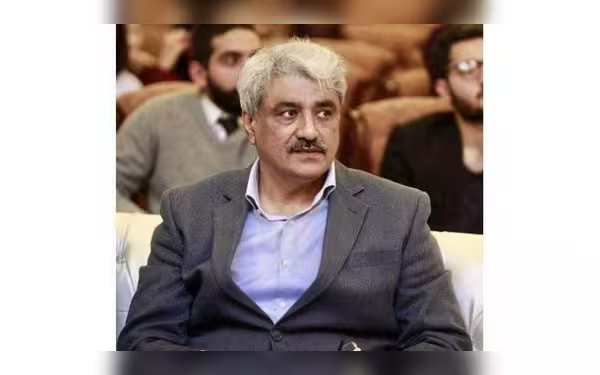Saturday, November 16, 2024 07:56 PM
Khawaja Salman Rafique Reviews Anti-Dengue Campaign in Rawalpindi
- Khawaja Salman Rafique emphasizes immediate action against dengue.
- Rawalpindi reports 1,996 dengue patients this year.
- Public awareness is crucial in combating dengue spread.
 Image Credits: urdupoint
Image Credits: urdupointKhawaja Salman Rafique reviews the anti-dengue campaign in Rawalpindi, emphasizing public awareness and immediate action against the outbreak.
In recent months, the threat of dengue fever has loomed large over various regions in Pakistan, particularly in urban areas like Rawalpindi. This mosquito-borne disease has been a recurring issue, especially during the monsoon season when stagnant water provides a breeding ground for the Aedes mosquitoes that transmit the virus. The government has recognized the urgency of the situation and is taking proactive measures to combat the spread of dengue.
On October 7, 2024, Provincial Health Minister Khawaja Salman Rafique convened a crucial meeting to assess the ongoing anti-dengue campaign. The meeting brought together key stakeholders, including Commissioner Rawalpindi Hasan Waqar Cheema, Parliamentary Secretary for Information and Culture Shazia Rizwan, and several members of the Punjab Assembly. Their collective goal was to evaluate the current dengue situation and strategize on effective interventions.
During the meeting, Minister Rafique emphasized the need for immediate action, stating, "Awareness sessions about dengue should be conducted. Our top priority is to reduce the spread of dengue in Rawalpindi." This statement underscores the importance of public education in preventing the disease. The minister also noted that Punjab Chief Minister Maryam Nawaz Sharif is closely monitoring the situation, reflecting the government's commitment to addressing this public health crisis.
As of now, Rawalpindi has reported a total of 1,996 dengue patients this year, with 281 individuals currently receiving treatment in local hospitals. Fortunately, 1,716 patients have successfully recovered and returned home. This statistic highlights the importance of timely medical intervention and community awareness in managing the outbreak.
Focal Person for Dengue, Tahira Aurangzeb, shared that public representatives are actively engaging with health department teams to conduct field visits. This collaborative approach aims to assess the situation on the ground and implement necessary measures. Aurangzeb stated, "At present, our responsibility is to control dengue," emphasizing the shared duty of both officials and the community in tackling this health challenge.
The fight against dengue requires a united front. Public support and awareness are crucial in curbing the spread of this disease. By participating in awareness sessions and taking preventive measures, individuals can play a significant role in protecting themselves and their communities. As the government ramps up its efforts, it is essential for citizens to remain vigilant and proactive in the face of this ongoing health threat.













